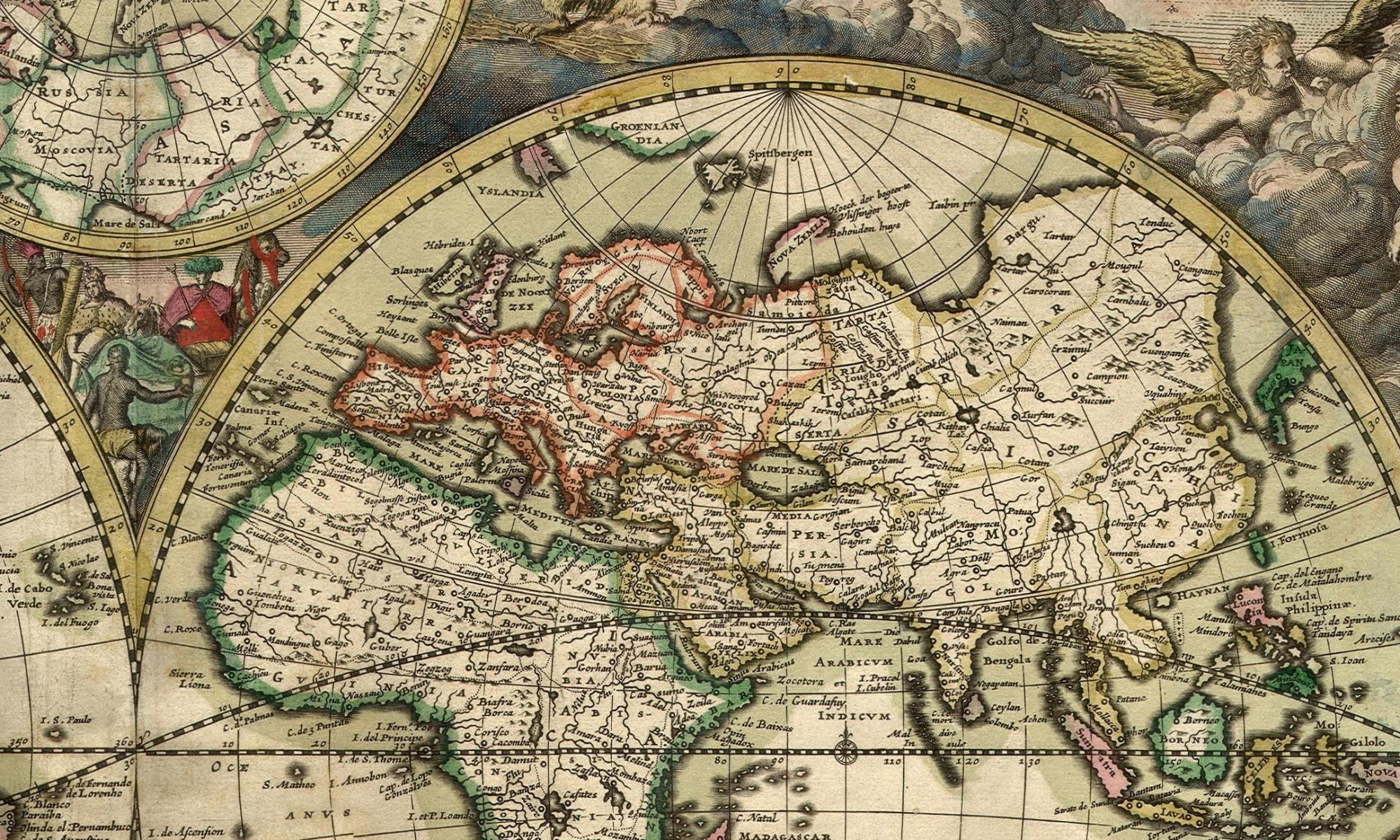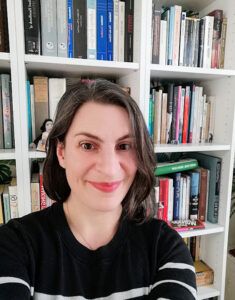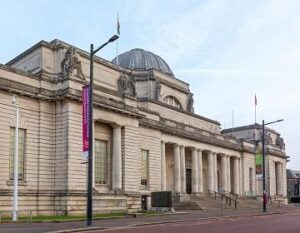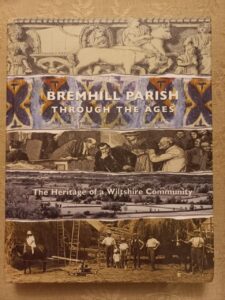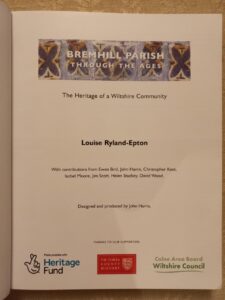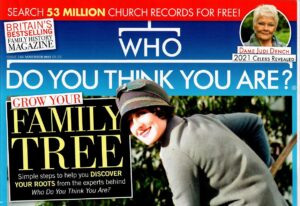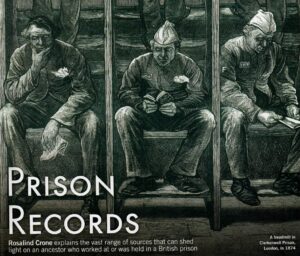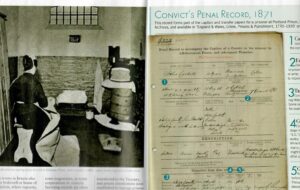While the French Revolution is traditionally seen as the starting point of “nationalist” movements in the 19th century, this project recasts the late eighteenth century as the end point of earlier debates about the idea of
History Department success with funded PhD studentships
The OU History Department has been awarded two Collaborative Doctoral Awards through the AHRC-funded Oxford-Open-Cambridge Doctoral Training Partnership. The first is co-supervised by Senior Lecturer Dr Anna Plassart and the second is co-supervised by Senior Lecturer Dr Richard Marsden
The late Scottish Enlightenment in global perspective, 1770-1815
Welshness in the museum: Representing the past in Wales’ National Museums, c.1900-1975
Dr Louise Ryland-Epton’s book on Bremhill parish and her many other achievements
Dr Louise Ryland-Epton, former OU PhD student and currently Visiting Fellow in the Department, published in December 2021 Bremhill Parish Through the Ages. As a result of this publication and many other activities through a Victoria County History Trust supported community history project that involved workshops, talks, two festivals, an app, website, heritage trail, children’s event, Dr Ryland-Epton was appointed to the Advisory Board of the Centre for the History of People, Place and Community at the Institute of Historical Research
In February 2021, Dr Ryland-Epton was awarded an Early Career Fellowship by The Royal Historical Society. The fellowship enabled Dr Ryland-Epton to complete an article (provisionally) titled ‘Parliament and the Georgian Magistrate: Sir George Onesiphorus Paul 1780-1820’. Her current research is focused on the operation of the English state in the late Georgian period, as expressed through the work of county magistrates, who she argue formed a crucial nexus that linked central and local government. In this article, she aims to properly examine the relationship between parliament and the English magistracy 1780-1820 using the career of the Gloucestershire magistrate Sir George Paul’s as a case study.
Dr Rosalind Crone’s article in Who Do You Think You Are? Magazine
Our own Dr. Rosalind Crone published an article about prison records in Who Do You Think You Are Magazine in November 2021 as part of her on-going AHRC-funded project on Prison History which has a wealth of free resources online.
Online exhibition as part of Dr. Richard Marsden’s Blaenau Gwent heritage project
BG REACH (Blaenau Gwent Residents Engaging in Arts, Culture and Heritage) is a collection of art, music, creative writing and film that tells the history of the area. Since 2020, the project has been led by local people, supported by academics from The Open University’s Faculty of Arts and Social Sciences, Linc Cymru Housing Association and Aberbeeg Community Centre.
In July 2021, an online exhibition was launched that includes video diaries, digital stories, creative writing, paintings, drawings, music and film produced by people living in Blaenau Gwent. It can be viewed for free at the OU’s free learning site OpenLearn.
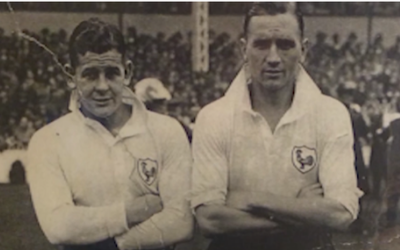
Fred Pettican and team mate, 1960
Image: Fred Pettican
Digital stories: remembering the past
The digital stories feature residents of Llys Glyncoed extra care scheme, near Ebbw Vale, who were interviewed by year nine pupils from Ebbw Fawr Learning Community. One of the Llys Glyncoed residents, Fred Pettican tells of his memory of playing football for Newport side Victoria against Bridgend in 1960. His corner was headed in by a player who coincidentally came to live in Llys Glyncoed at the same time as Fred. He also still has the match ball from the game!
Poems and prose
Many of BG REACH’s participants have produced poems and prose to capture the history of the area and their feelings of growing up there. In Remembering Cwmtillery, 61 year-old Stephen Davies recalls visiting his grandmother as a child. He has also produced sketches of some of the landmarks mentioned in his work.

Sketch of Cwmtilley Pithead
Image: Stephen Davies
We would then return to my nan’s house in West Bank. And have tea. She made nice apple tart + custard. She also made her own bread pudding. And rice puddings. They were the days people made and cooked their own food. Very different from today.
After tea. I would meet up with a few friends I knew. We would have lots of fun. Sliding down the bank. From Top Rows to West Bank. On bits of cardboard. This banking is now covered in large trees. And my nans old house is gone. Sadly. Both mam and dad. Have now passed away.
Extract from Remembering Cwmtillery by Stephen Davies
In her poem Bathed in Birdsong, Susan Davies describes the peaceful surroundings of the valleys, made all the more quieter as a result of the coronavirus lockdown.
Bathed in Birdsong
Bathed in birdsong, I love this place of peace
Enjoyed the spring here
Which was almost stolen from me, but was in fact, enriched
A little further on the lambs are baaing
Another treasure uncovered
Unseen by me for years
Extract from Bathed in Birdsong by Susan Davies

Modron
Image: Barbara Candish
Paintings and photography
Visual artwork also forms part of the exhibition, including The Guardian by Mark Burns, based on the Six Bells Guardian; Modron by Barbara Candish, which is a painting and accompanying poem celebrating a mythic Welsh warrior Queen of the Silures tribe which once occupied the area; and photography by Linda Stemp which captures some of the area’s historic buildings.
Dr Richard Marsden, academic lead on the BG REACH project said:
“The key to unlocking the hidden history of Blaenau Gwent was to support participants to design the project themselves – to decide what they wanted to focus on and how best to achieve that. The artworks, poems, stories and songs in the online exhibition are a celebration of Blaenau Gwent’s heritage expressed through the talents of the people who live there. The Gwent valleys are part of Wales’ forgotten heritage. They’re often associated with industrial fervour followed by economic decline, but – as people will see from taking a look at the exhibition – there’s so much more to them than that.”
The impact of the pandemic
The coronavirus had an impact on much of the project. A musical piece, Cynefin, was written by some of the group members with a view to performing it live. The pandemic put a halt to their plans, but the group continued to meet online, and recorded Cynefin 2 over video. Cynefin is a Welsh work referring to a person’s connection to an area and its people. The tune draws on Welsh folk music, including lullaby Suo Gân and love song Ar Lan y Môr.
Member of the Senedd for Blaenau Gwent Alun Davies addressed attendees of the launch.
Blaenau Gwent MS Alun Davies said:
“The Blaenau Gwent REACH project, coordinated by The Open University in Wales in partnership with Linc Cymru Housing Association and Aberbeeg Community Centre, is a fantastic example of bringing people together and of the power of using creative arts to explore identity and heritage.”
Podcast: British prisons: everything you wanted to know
Just how bad was life in Victorian prisons? How hard was hard labour, and how revolting was the food? In this June 2021 episode of the History Extra Podcast series tackling the big questions on major historical topics, our own Dr Rosalind Crone responds to listener queries on the history of British prisons, in British prisons: everything you wanted to know.
Sandip Hazareesingh’s presentation at Heritage and Our Sustainable Future
Dr Sandip Hazareesingh gave a presentation on ‘Millet heritages and climate adaptation in southern India’ in the context of a conference on Heritage and our Sustainable Future held 22 February-2 March 2021, and hosted by Praxis at the University of Leeds and the UK National Commission for UNESCO. The presentation focused on how millet farming cultural heritages, accessed through oral history, have enabled local communities to adopt climate mitigation strategies to ensure food security. You can watch a video of Dr Hazareesingh’s presentation here.
Blaenau Gwent arts project celebration event
Aspiring Poets, musicians and artists from across Blaenau Gwent got together over video last month in a cultural celebration of their area, history and people.
The group are part of BG REACH (Blaenau Gwent Residents Engaging in Arts, Culture and Heritage) a celebration of the heritage, history and people of Blaenau Gwent past and present, led by Dr. Richard Marsden, Senior Lecturer and Staff Tutor in History. The group met for the first time in February 2020 at creative workshops in Aberbeeg. The pandemic cut short face-to-face sessions, but the group kept in touch over video and carried on working together.
‘Back then we didn’t anticipate the imminent challenges to come in the form of severe flooding and then a global pandemic,’ explains Sarah Roberts, the OU in Wales’ partnerships coordinator for south-east Wales. ‘But by working together and mainly down to the commitment and passion of people within the Aberbeeg community group, here we are today to share and celebrate some of the creative work that’s been happening during these challenging times.’
During the online celebration, the group shared a music project, poems, art and photography with each other and the Open University academics who had worked with them. Linc Cymru Housing Association staff, who also supported the project, were among the attendees alongside family and friends. Cynefin2, a video created and recorded remotely by the group during the pandemic which celebrates in words and music the beauty of the area, was also premiered during the event.
The BG REACH team hope to keep gathering more creative work which celebrates heritage in Blaenau Gwent. This can include photography, creative writing, artwork, or music which will be shown in an exhibition in 2021. If you live in the area and interested in sharing your work email [email protected] to find out more.
Funding success for Community Research and Engagement Project
Dr Richard Marsden, Lecturer in History, with Sarah Roberts of the OU in Wales and partner Linc Cymru, have been successful in their bid for funding for a community research and engagement project with participants in Blaenau Gwent (South Wales).
The award of £37.5k, from the UK Research and Innovation’s (UKRI) “Enhancing place-based partnerships in public engagement” competitive £500k pathfinder funding, will be matched by a further £18.5k in kind from the OU and project partner Linc Cymru housing association. The UKRI fund supports eligible research organisations UK-wide to pilot place-based public engagement partnerships and activities. Of 91 bids from universities across the UK, just 19 were successful
The project – BG Reach (Blenau Gwent Residents Engaging in Arts, Community and Heritage) – will enable participants from marginalised communities to explore their own sense of heritage and identity through the creative arts. A series of workshops facilitated by Open University tutors are at the heart of the project. These will support community members to reflect on local heritage and its relevance to their own sense of identity. Participants will be supported to articulate those reflections through creative endeavours such as fiction, art, song-writing and oral history.
At the end of the project, a multi-media exhibition of participants’ work, designed by community members, will be toured and made available online. The team will produce a report on the challenges, and their solutions, to community-based co-production experienced by the project, and a journal article using the exhibition to explore links between heritage and identity in the South Wales Valleys. Pathways towards formal study will also be created for those participants, enthused by the informal learning in the creative workshops, who wish to further their studies.
The intention is to seek further funding which would enable widening the project out to other disadvantaged communities across the UK.
“This is one of 53 pilot projects that we have funded, all using exciting ways that researchers and innovators can involve the public in their work. In 2020 and beyond, we will build on the lessons we learn through funding these pilot projects to help us achieve our ambition of making research and innovation responsive to the knowledge, priorities and values of society and open to participation by people from all backgrounds.” – Tom Saunders, Head of Public Engagement, UK Research and Innovation.
UK Research and Innovation works in partnership with universities, research organisations, businesses, charities, and government to create the best possible environment for research and innovation to flourish. It operates across the whole of the UK with a budget of more than £7 billion.
Dr Sandip Hazareesingh keynote address ‘Food Memories and Stories from Karnataka women farmers’
How historical research can contribute to international development challenges
Dr Sandip Hazareesingh delivered a keynote address titled ‘Food Memories and Stories from Karnataka women farmers’ at a GCRF event on ‘Food and Heritage’ at the University of Leeds on 10 January. The event was organised by Praxis, a recently set up project funded by AHRC-GCRF with the aim of championing the distinctive contribution that Arts and Humanities research can make to tackling urgent development issues. https://changingthestory.leeds.ac.uk/praxis/
